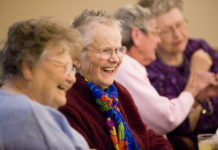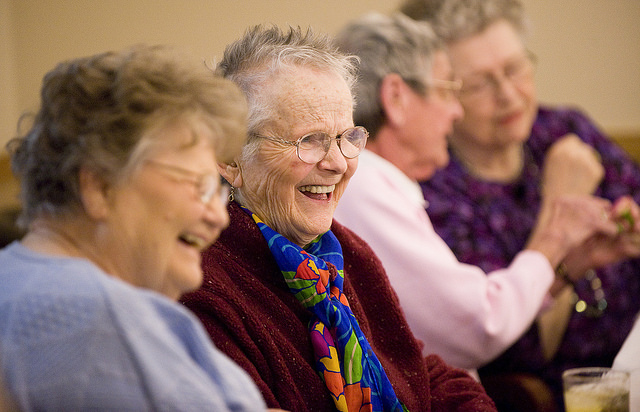Spending time and having fun with others keeps ageing minds healthier and reduces the risk of developing dementia, according to brain health experts.
Seven or more is best
On average, older adults have seven people in their social network, defined as family members and friends who they feel close to and can talk to about personal matters, and who they have contact with at least once a month. “If you find that your social engagement is below this, you may want to consider ways to increase it,” advises Dr Nicole Anderson, a clinical neuropsychologist and senior scientist; Dr Kelly Murphy, a clinical neuropsychologist in neuropsychology and cognitive health; and Dr Angela Troyer, professional practice chief of psychology.
“There is a nearly endless number of ways to be socially engaged … It is important to find a variety of activities you enjoy doing, and participate in them often,” the authors note. While purely social activities are beneficial, activities that also engage a person physically or mentally are even better when it comes to retaining thinking abilities, or cognition, in old age.
Getting out and about
- Attend courses or groups at a recreation centre, library, college or university.
- Attend religious services.
- Volunteer.
- Participate in neighbourhood or family activities.
- Exercise, or play a group sport, cards or board games with others.
Why friends and family are so important
Studies show that people who are happier with their interactions with others are at lower risk of dementia—regardless of how frequent these connections are.
A large U.S. study has found that those with the fewest close friends, relatives and social connections have mortality rates two to three times higher than those with high levels of social connectedness.
Cultivate better, stronger friendships
The authors recommend these five ways to strengthen and improve friendships and increase the quality of social exchanges:
- Communicate openly and honestly about what you need and want.
- Focus on listening and sharing.
- Keep personal information confidential to build trust with others.
- Focus on fun.
- Stay in touch.
Social support reduces stress
How does interacting with other people provide us with physical and mental benefits as we age? One theory is that social support helps reduce the effects of stress on our bodies. For example, having a family member nearby during a stressful event, such as visiting a doctor, can result in less of an increase in blood pressure and heart rate.
As a group, older adults with a stronger social network have a more robust immune system which strengthens the body’s ability to combat some types of cancer, infectious disease and even the common cold. Social interactions also improve mood and increase feelings of well-being.
Have fun, conclude the authors. “As you do this, you just may notice that you feel better, that you are less stressed, and perhaps even that you can remember things a bit better than you used to.”























